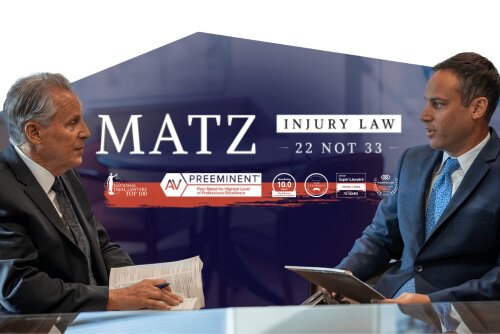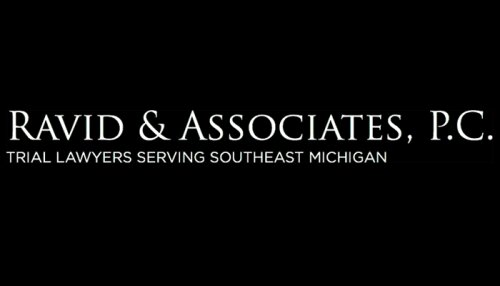Best Toxic Tort Lawyers in Southfield
Share your needs with us, get contacted by law firms.
Free. Takes 2 min.
List of the best lawyers in Southfield, United States
About Toxic Tort Law in Southfield, United States
Toxic tort law addresses legal claims involving exposure to harmful substances that can cause injury or illness. In Southfield, United States, this field of law is particularly pertinent due to both historical industrial activity and ongoing concerns about environmental and occupational exposure to hazardous chemicals. Toxic tort cases can arise from various situations, such as exposure to pesticides, pharmaceuticals, heavy metals, asbestos, and other industrial chemicals. These cases typically involve complex litigation processes, scientific data, and regulatory compliance issues, which can necessitate specialized legal expertise.
Why You May Need a Lawyer
There are several common scenarios where individuals in Southfield might require legal assistance with toxic torts:
- If you have been exposed to hazardous chemicals at work and have developed health issues, you might need legal advice to pursue compensation.
- Residents living near industrial sites or waste disposal facilities might suspect that environmental contamination has caused health problems.
- Consumers harmed by defective products or pharmaceuticals may require legal action against manufacturers or suppliers.
- If you are a landlord or tenant dealing with toxic mold or lead paint, legal intervention might be necessary to address liabilities and health risks.
Local Laws Overview
Southfield falls under the jurisdiction of both Michigan state and federal environmental laws that govern toxic tort cases. Key pieces of legislation include:
- The Michigan Environmental Protection Act, which provides a framework for addressing environmental damage.
- The Occupational Safety and Health Act (OSHA) regulations, which stipulate standards for workplace safety regarding exposure to toxic substances.
- The Comprehensive Environmental Response, Compensation, and Liability Act (CERCLA), also known as Superfund, which addresses the cleanup of contaminated sites.
These laws, among others, play a crucial role in guiding toxic tort litigation, protecting public health, and ensuring responsible handling and remediation of hazardous materials.
Frequently Asked Questions
What is a toxic tort?
A toxic tort is a specific type of personal injury lawsuit in which a plaintiff claims that exposure to a chemical or other hazardous substance has caused injury or illness.
How do I know if I have been exposed to a toxic substance?
Exposure often comes with symptoms of illness or injury, but it is essential to seek medical advice for a proper diagnosis. Often, exposure can also be identified through environmental testing or workplace records.
Who can be held liable in a toxic tort case?
Potential defendants may include manufacturers of toxic substances, employers, landlords, pharmaceutical companies, or waste disposal facilities, among others.
What kind of compensation can I expect in a toxic tort lawsuit?
Compensation can vary but often includes medical expenses, lost wages, pain and suffering, and potentially punitive damages if egregious negligence is proven.
How long do I have to file a toxic tort lawsuit in Southfield?
The statute of limitations can vary, so it is crucial to consult with a lawyer as soon as possible, typically within three years from the date of injury or discovery of harm.
Can a toxic tort case become a class action lawsuit?
Yes, if many individuals have suffered similar harm from the same source, a class action may be appropriate to consolidate claims and streamline the legal process.
How is causation established in a toxic tort case?
Establishing causation often involves scientific evidence and expert testimonies to demonstrate that the plaintiff's injuries are directly linked to the exposure of a specific toxic substance.
Are there any defenses available for those accused in a toxic tort case?
Common defenses include arguing the lack of causation, claiming the plaintiff’s exposure was not due to the defendant's conduct, or invoking compliance with regulatory standards.
What role does a lawyer play in a toxic tort case?
A lawyer can help collect evidence, identify defendants, comply with procedural laws, locate expert witnesses, negotiate settlements, or represent clients in court.
Can I handle a toxic tort case on my own without a lawyer?
Given the complexity of toxic tort litigation, involving detailed scientific and regulatory knowledge, it is generally advised to seek professional legal representation to navigate the process effectively.
Additional Resources
Consider reaching out to the following resources for more information or assistance:
- The Environmental Protection Agency (EPA) for guidance on environmental issues.
- The Michigan Department of Environment, Great Lakes, and Energy (EGLE) for regional environmental regulations and initiatives.
- Local Health Departments for advice and testing related to environmental health risks.
- National Law Firms specializing in Toxic Tort litigation with offices in Michigan.
Next Steps
If you suspect you have a toxic tort claim, begin by consulting with a specialized attorney who can assess your case and guide you through the legal process. Gather any evidence you have related to your exposure and health impacts. Seek medical advice to document your medical condition linked to exposure. Finally, be proactive in following up on potential legal actions to ensure compliance with statutory deadlines.
Lawzana helps you find the best lawyers and law firms in Southfield through a curated and pre-screened list of qualified legal professionals. Our platform offers rankings and detailed profiles of attorneys and law firms, allowing you to compare based on practice areas, including Toxic Tort, experience, and client feedback.
Each profile includes a description of the firm's areas of practice, client reviews, team members and partners, year of establishment, spoken languages, office locations, contact information, social media presence, and any published articles or resources. Most firms on our platform speak English and are experienced in both local and international legal matters.
Get a quote from top-rated law firms in Southfield, United States — quickly, securely, and without unnecessary hassle.
Disclaimer:
The information provided on this page is for general informational purposes only and does not constitute legal advice. While we strive to ensure the accuracy and relevance of the content, legal information may change over time, and interpretations of the law can vary. You should always consult with a qualified legal professional for advice specific to your situation.
We disclaim all liability for actions taken or not taken based on the content of this page. If you believe any information is incorrect or outdated, please contact us, and we will review and update it where appropriate.











